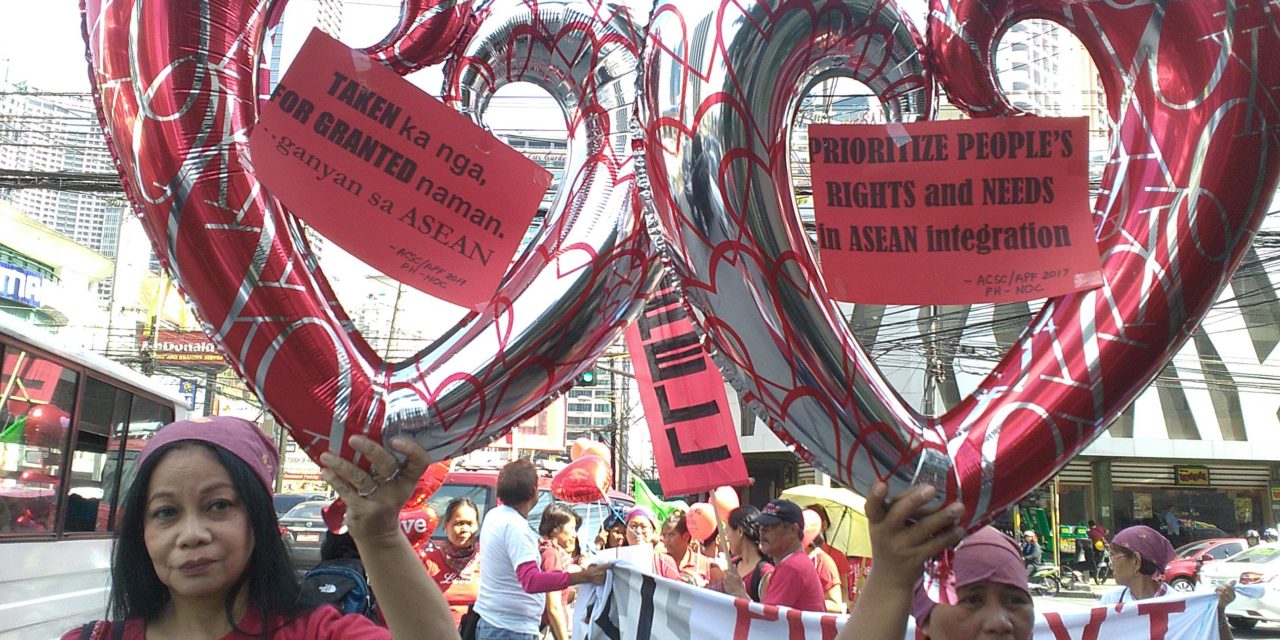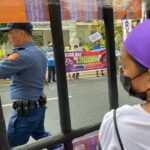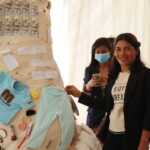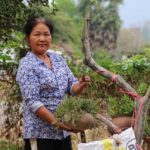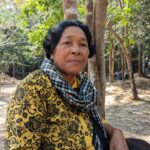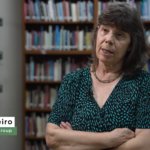MAKATI CITY, Philippines – On Valentine’s Day, around 100 members of the ASEAN Civil Society Conference/ASEAN Peoples’ Forum 2017-Philippines National Organizing Committee (NOC) wearing red shirts marched to the Department of Trade and Industry (DTI) to deliver the Philippine CSOs’ position and demands on the ASEAN Economic Community (AEC). The NOC, led by its co-conveners Freedom from Debt Coalition (FDC) and PhilWomen on ASEAN, asked that its statement be tackled also at the 31st meeting of the High Level Task Force on ASEAN Economic Integration (HLTF-EI) the following day. A number of the groups that have been engaging DTI on trade and investment issues and free trade agreement (FTA) negotiations are also part of the ACSC/APF 2017 NOC.
A big Valentine’s card containing the CSOs’ statement was handed over to the Philippine representative to the HLTF-EI, DTI Undersecretary and official-in-charge of trade policies Ceferino Rodolfo who later invited the CSOs to a dialogue in a big meeting room at the Board of Investments. “The ACSC/APF 2017 Philippines NOC sees the Philippines Chairship of ASEAN for 2017 as a good opportunity to advance the peoples’ critique of the AEC and the current direction espoused by ASEAN’s economic integration agenda. The statement underscored, among others, the following issues: 1) Increasing inequalities and the continuing dominance of corporate power, 2) Informalization of the labor market and increasing migration concerns, 3) environmental degradation and the climate crisis, 4) peace and human security, 5) human rights and access tojustice, 6) and life with dignity. On the occasion of ASEAN’s 50th year, it is high time for our government to integrate the people’s vision in the regional integration” declared FDC president Dr. Eduardo Tadem.
Under the AEC blueprint, ASEAN economies are expected to become a single production and market base that seeks to facilitate the free flow of goods and skilled labor. Mark Pascual, Program Officer of Asia Pacific Research Network, highlighted that the current thrust of the AEC and the wider ASEAN integration process itself is influenced by neoliberal interests affirmed by free trade agreements wherein big businesses and transnational corporations remain its main drivers and beneficiaries, thus markets and profits are prioritized over the needs and rights of the people
During the 2-hour dialogue with DTI Usec Rodolfo, the Philippine NOC tackled a wide range of issues and pressed that these urgent issues will be integrated in the discussions of the HLTF-EI. “The government should review all existing trade and investment agreements, and if necessary terminate those that do not serve the peoples’ interests,” voiced Joseph Purugganan, Coordinator of Focus on the Global South – Philippines. He explained that the rise of mega-regional trade deals such as the Regional Comprehensive Economic Partnership (RCEP) and bilateral new generation FTAs is also a growing cause for concern owing to its impending impacts – on the country’s agricultural sector, labor rights including those of migrant workers, women, marginalized sectors, access to cheap and life-saving medicines, and on national sovereignty. AEC’s labour mobility should benefit all workers including migrant workers and not only highly skilled professionals.
“The ASEAN Regional Integration is feared to fail lest it takes into account the systemic and intersectional dimension of discrimination, oppression and exclusion,” said Chang Jordan, Program Director of Women’s Legal Bureau. To illustrate her point, Jordan who also represents PhilWomen on ASEAN raised that the AEC’s focus on creating market conditions does not translate to women’s equal opportunity in economic and labor markets, as it refuses to acknowledge differences resulting from gender stereotyping in labor roles—the negative effects are especially intensified in poorer developing countries.
Maris Dela Cruz, coordinator of the Network for Transformative Social Protection, expressed that market liberalization, deregulation and privatization programs pursued by ASEAN have led to the loss of traditional livelihoods and means of survival, and further exploitation of workers. The perspectives of ordinary people especially the vulnerable and marginalized aspiring for a life of dignity have not been integrated in the AEC. The challenge to our governments is to take up the notion of a Social ASEAN, not only focus on Economic ASEAN. “The Philippine Government must guarantee social protection for all and reverse the privatization of public services especially healthcare and education and instead, forge public-public partnership—state partnerships with non-profit groups like peoples’ cooperatives or social enterprises,” added Ana Vitacion, coordinator of the alliance Buhay na may Dignidad para sa Lahat (DIGNIDAD).
Raquel Castillo, Lead Convener of Sustainability and Participation through Education and Lifelong Learning (SPELL) opined, “instead of human capacity and capabilities development being geared towards addressing individual and community needs as a priority, they will increasingly be boxed in and reduced to catering to the imperatives of the regional integrating economy and big business.”
The AEC has also put considerable pressures on local and regional biodiversity and natural ecosystems resulting in rapid degradation of land, water, and forest resources. “The obsession to sustain the neoliberal economic growth model has taken its toll on the environment, widening resource inequalities and has aggravated the climate crisis in the region,” added Cipriano Fampulme of Aksyon para sa Kahandaan sa Kalamidad at Klima (AKKMA).
Chants of “Nothing about us without us!”, “ASEAN by the people, not only by the States!”, and “People over Profit!” filled the air at DTI. Civil society organizations representing various sectors in the Philippines united under the NOC of the ACSC/APF2017 aim to amplify grassroots people’s voices in asserting human rights, democratization, and economic, social and ecological justice towards a just, humane, and equitable Philippines and Southeast Asia.
To complete the Valentine’s Day spirit, the NOC members also gave sampaguita garlands and heart-shaped balloons carrying their demands to the DTI representatives. In addition, the CSOs also handed over tubaws to the DTI officials. Both CSOs and the DTI officials agreed to have a continuing dialogue, before and after the ASEAN Summit. #
ACSC/APF2017 Philippines National Organizing Committee (NOC) Co-conveners: PhilWomen on ASEAN Network lFreedom from Debt Coalition | Members: Aksyon para sa Kahandaan sa Kalamidad at Klima lAlab KatipunanlAlmanalAsian Peoples Movement on Debt and DevelopmentlAlliance of Philippine Partners in Enterprise Development lASEAN SOGIE CaucuslAsia Pacific Network on Food Sovereigntyl SEAN Youth Leaders Association – PhilippineslAsian Federation Against Involuntary Disappearances lAsian Partnership for the Development of Human Resources in Rural Asia lAsia Pacific Research Network lArya Progresibo lAsian Solidarity Economy Council – Philippines lAssociation for the Rights of Children in Southeast Asia lAteneo Human Rights Center lASEAN Youth Forum lBagong Alyansa Nagkakaisang Gabay sa Kalamidad at Klimal Buhay na may Dignidad para sa Lahat (DIGNIDAD)lBuklod ng Manggagawa sa Radio Communication of the Philippines, Inc. – National Federation of Labor lBulig Visayas lCenter for Environmental Concerns lCenter for Energy, Ecology and Development lCenter for Migrant Advocacy lCenter for Women’s Resources lChild Rights Coalition-Asia lCivil Society Coalition on the Convention on the Rights of the Child lCoalition of the Services of the Elderly lDevelopment Alternatives with Women for a New Era lEmpower lFair Trade Foundation Panay lFoundation for Media Alternatives lFoundation for a Sustainable Society lFocus on the Global South – Philippines lGender Watch Against Violence and Exploitation lHope for the Youth lInitiatives for International Dialogue lIntegrated Rural Development Foundation lInternational Youth United lKanlungan Center Foundation lKilusan Para sa Pambansang Demokrasya lMagsasaka at Siyentipiko para sa Pag-unlad ng Agrikultura lMigrant Forum in Asia lMindanao Migrants Center for Empowering Actions lNational Movement for Food Sovereignty lNetwork for Transformative Social Protection lNational Federation of Labor lPangisda lProgresibong Alyansa ng mga Mangingisda lPartnership of Philippine Support Service Agencies lPeoples Alternative Study Center for Research and Education in Social Development lPambansang Kalipunan ng mga Manggagawang Impormal sa Pilipinas lPhilippine Alliance of Human Rights Advocates lPhilippine Network of Food Security Programmes lPhilippine Movement for Climate Justice l Rural-Urban Peoples' Linkages lSanlakas lKasarian-Kalayaan lSave the Children – Philippines l Sustainability and Participation through Education and Lifelong Learning lStrengthening Alliance of Victims for Empowerment from Disaster (SAVED) RIZAL lSentro ng mga Nagkakaisa at Progresibong Manggagawa lTebtebba lUnang Hakbang Foundation lWomanHealth Philippines lWorld Council for Curriculum and Instruction lWomen's Legal and Human Rights Bureau

